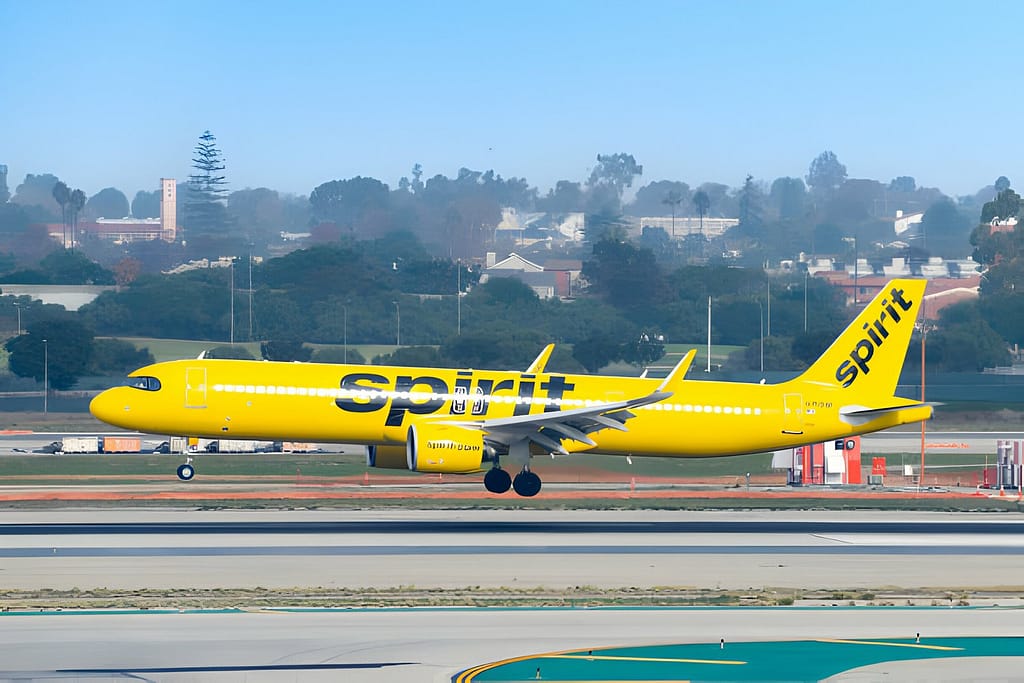In a significant legal development, a federal judge, William G. Young, from the U.S. District Court for the District of Massachusetts, has ruled against JetBlue Airways’ proposed $3.8 billion acquisition of Spirit Airlines. The decision represents a victory for the Department of Justice, which argued that the merger would negatively impact competition in the airline sector, ultimately harming consumers.
Table of Contents
Justice Department’s Antitrust Argument
The Justice Department contended that the merger would reduce competition in the airline industry, potentially leading to higher fares for travelers. With the four largest U.S. airlines – American Airlines, Delta Air Lines, Southwest Airlines, and United Airlines – already controlling about two-thirds of the market, allowing JetBlue to acquire Spirit, a smaller low-cost carrier, would further diminish options for consumers.
Impact on Market Dynamics
If the merger had gone through, it would have resulted in the creation of the nation’s fifth-largest airline. However, the Justice Department argued that the move would eliminate a valuable low-cost option for consumers, as smaller carriers like Spirit played a crucial role in driving down fares. The analysis presented during the trial indicated that new routes introduced by Spirit had a positive effect on overall fare levels, including those offered by JetBlue.

Judge Young’s Ruling: Safeguarding Competition
In his 109-page ruling, Judge Young sided with the Justice Department, expressing concerns that the merger might incentivize JetBlue to deviate from its roots as a maverick, low-cost carrier. He emphasized the importance of Spirit as a small, low-cost alternative to larger airlines and stated that the proposed merger would likely undermine this dynamic.
Financial Implications and Stakeholder Reactions
Following the news of the blocked merger, Spirit’s share price plummeted by 47%, while JetBlue’s share price experienced a 5% increase. Analysts, such as Jonnathan Handshoe from CFRA Research, suggested that JetBlue’s share price rise was attributed to the potential cost savings associated with the failed merger, estimated at $3 billion. Spirit, on the other hand, faced challenges and had not turned a profit since before the pandemic.
As part of the failed merger agreement, JetBlue had committed to paying Spirit $70 million and its shareholders $400 million. In a joint statement, the two airlines expressed disagreement with the ruling, maintaining that their combination would enhance competition and choice, offering low fares and excellent service to customers.
Recent Trends in Airline Mergers and Antitrust Enforcement
This ruling follows a recent trend in antitrust enforcement in the airline industry. Just weeks ago, Alaska Airlines announced plans to acquire Hawaiian Airlines for $1.9 billion. If approved, this deal would give Alaska approximately 8% of the airline market.
Notably, in May, a federal judge blocked a partnership between JetBlue and American in Boston and New York, following a challenge from the Justice Department. The ruling on Tuesday marks another success for antitrust officials, showcasing what Dylan Carson, a lawyer at Manatt, Phelps & Phillips, describes as a “winning streak” for the Biden administration’s enforcement agenda.
Industry Experts Weigh In After Jetblue Saga:
Aviation consultant Hubert Horan emphasized that the blocked merger would have eroded competition in the airline industry. He argued that low-cost carriers like Spirit were instrumental in driving most of the industry’s operating and marketing innovations. Horan expressed concerns that JetBlue, instead of aggressively competing, was transforming into a smaller version of a legacy carrier.
The court’s decision to block the JetBlue-Spirit merger reflects a commitment to preserving competition and consumer choice in the airline industry. As the Justice Department continues to scrutinize proposed mergers, the ruling sets a precedent and aligns with broader efforts to prevent market consolidation that could potentially harm travelers.